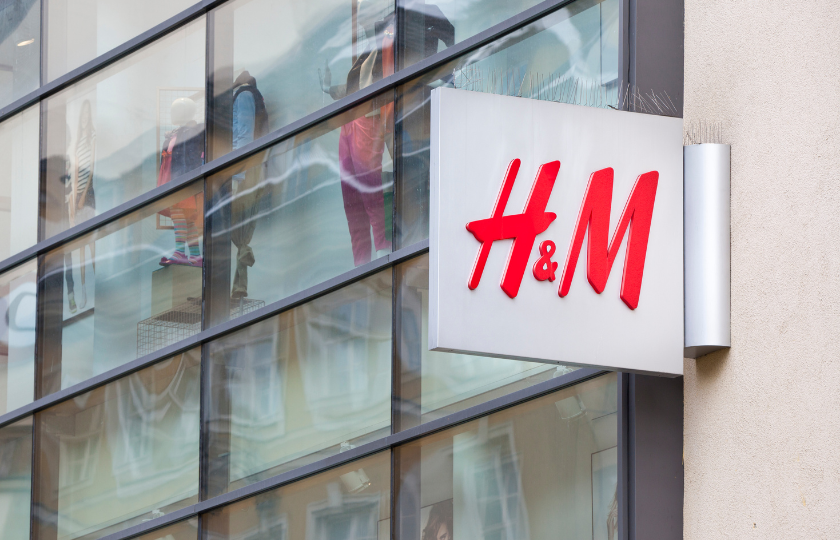Fashion labels, including H&M, and Norrona, have been accused of breaching “greenwashing” laws over the use of a sustainability index that has been discredited by an investigative journalist in Europe.
According to Sourcing Journal, the Sustainable Apparel Coalition (SAC) has commissioned “with urgency” an independent third-party expert to re-evaluate the methodology behind the Higg Materials Sustainability Index (MSI), a module of the popular Higg Index suite of tools that scores the environmental impact of materials. Based on MSI data, the review follows a decision by the Norwegian Consumer Authority (NCA) that H&M and Norrona are “breaking the law” when marketing their products as eco-friendly.
According to the NCA, using Higg MSI data in sustainability claims is misleading and a breach of Norway’s greenwashing laws.
SAC, which has a roster of more than 250 brands, retailers, and manufacturers, including Adidas, H&M, Walmart, Patagonia and Norrona, will also “pause” its Transparency Program, a consumer-facing platform introduced last year to provide consumers information about the impact of apparel and footwear items across various environmental factors such as water, greenhouse gas emissions, and fossil fuels.
“Transparency itself is not the end game, but it’s a critical step for transforming the industry and establishing a new era of accountability,” said Amina Razvi, executive director of the SAC. “By leveraging the Higg Index – starting with environmental data and then expanding to include social impacts – we can help businesses and consumers make better decisions and drive collective action at scale.”
‘Misleading’ data for sustainability
H&M Group countered that it is not using the Higg Transparency Program in Norway, though it believes in the Higg Index’s value in providing standardised and verified third-party information on sustainability performance.
“We believe the MSI, which is the method behind the Higg transparency layer, is the most developed industry-wide method available at scale today,” a spokesperson from H&M told Sourcing Journal.
“We see this as a starting point for the industry, not the end destination. But the industry is not there yet.”
While Norrona used the transparency platform to highlight the improved sustainability profile of some of its products, the company used a visual scorecard that indicates its organic cotton t-shirts produce fewer emissions, fewer fossil fuels, require 88 per cent less water, and create 47 per cent less water pollution than their counterparts.
According to NCA, the scorecard misled consumers because the information supplied referred to the average environmental attributes of the cotton fibre and not the specific items sold – meaning there wasn’t enough proof that the claims for impact reductions were “true and correct”.
“The main problem with using the global average number is that they fail to capture local variations in resource usage and environmental impact,” NCA wrote in its June 16 ruling.
“There are significant differences in how cotton is grown and how much water farmers use, as well as how and if they use these inputs efficiently. For example, climate, rainfall and irrigation technology vary greatly from one farm, country and region to another.”
The organisation also slammed Higg for using partially outdated data that it said was never meant for comparative purposes and for failing to consider factors such as emissions from manure in their calculations of organic cultivation.
“When such information is missing, gaps emerge between marketing claims and reality.”
Natural Fibers Alliance calls for the suspension of the Higg Index
Jason Kibbey, CEO of Higg, said the index was established with the premise that transparent data is essential for change and urged regulators to hasten their decision on a unified approach to data-backed consumer product claims.
“Higg is a technology platform that enables consumer goods companies to measure, manage, and share their environmental and social impact,” said Kibbey.
“We incorporate new methodologies and datasets as alternatives become available.”
The Natural Fibers Alliance (NFA) called for the tool’s suspension, arguing that natural fibre-derived products should be the norm, not the exception.
“Simple, natural biodegradable fibres, including leather, wool, fur, and silk, are more sustainable and better for our planet than plastic clothing,” said the organisation.
Retailers urged to transition away from polyurethane
The Higg Index has given a favourable rating to PU textile (polyurethane) – a common material used for faux and vegan leather – despite the fact that PU is still plastic and detrimental to the environment.
A recent story reported by the New York Times gained traction after highlighting that the Higg Index rated the plastic PU material higher than natural leather.
PU is made from a harmful chemical dimethyl chloride (DMF) and fossil fuels, leading innovators to develop greener alternative fabric materials using cactus leaves, pineapple leaves, apple skins, grape skins, and mushrooms.
“To actually disrupt the use of PU requires collaboration at all levels of the supply chain and we urgently need retailers to be a driving force in achieving the goal of ending PU manufacture and use,” expressed Anne Hurley, CEO of vegan fashion label James & Co.
“End the offering of products made in PU in favour of more sustainable leather products and drive existing brands to switch their raw material to more sustainable synthetic leather.”
Mike Brown, head of sustainability and public affairs for the NFA, said in a statement that the culture of fast fashion is as much consumer-driven as it is a direct result of corporate greenwashing.
“The only way to lower environmental costs and impact is to buy clothing that lasts, repurpose older pieces and support a culture of slow fashion based on high-quality, long-lasting materials,” he said.



